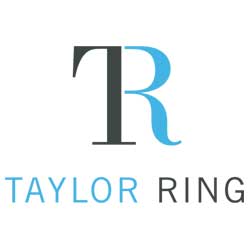Sexual Harassment May Not Be What You Think It Is
 Let’s say things got a little rowdy at the office holiday party this year: too many people had too many drinks, and everyone’s inhibitions seemed to fly right out the window. While you were standing in line for a glass of champagne, or chatting with a friend, a coworker you barely know comes up and grabs you, tells you that he or she has always found you attractive, and kisses you square on the mouth before ambling off to another circle of coworkers.
Let’s say things got a little rowdy at the office holiday party this year: too many people had too many drinks, and everyone’s inhibitions seemed to fly right out the window. While you were standing in line for a glass of champagne, or chatting with a friend, a coworker you barely know comes up and grabs you, tells you that he or she has always found you attractive, and kisses you square on the mouth before ambling off to another circle of coworkers.
What do you do? Do you chalk it up to too much egg nog and laugh it off? Do you speak to the manager? Do you make a scene?
Under the law, a one-off event like this might not be considered an example of sexual harassment, especially if the behavior is never again repeated. If, however, such behavior is considered par for the course for that particular coworker, then you may be able to make a claim against him or her for harassment.
Defining sexual harassment
The U.S. Equal Employment Opportunity Commission offers this definition of harassment:
“It is unlawful to harass a person (an applicant or employee) because of that person’s sex. Harassment can include ‘sexual harassment’ or unwelcome sexual advances, requests for sexual favors, and other verbal or physical harassment of a sexual nature. Harassment does not have to be of a sexual nature, however, and can include offensive remarks about a person’s sex….
Although the law doesn’t prohibit simple teasing, offhand comments, or isolated incidents that are not very serious, harassment is illegal when it is so frequent or severe that it creates a hostile or offensive work environment or when it results in an adverse employment decision (such as the victim being fired or demoted)” (emphasis ours).
The example above is an isolated incident, and is very likely to be exempt from the EEOC’s definition. However, if the coworker who kissed you has a habit of doing that to other people as well, then you (and the other victims) are well within your rights to make a claim of sexual harassment.
You may also have grounds for a claim if your coworker, supervisor, manager or anyone else in the company engaged in:
- Unwelcomed touching, even that which is not sexual in nature
- Stalking behaviors, such as excessive calls, texts or emails, or following you home or to social settings
- Viewing pornographic or explicit materials while at work
- A pattern of verbal or physical behaviors that make you feel uncomfortable or inferior because of your looks, your gender identity, your sexual preferences or your sex
Any and all of these may lead to a hostile work environment. If they do, you have legal options available to you. You should also check your employee handbook or any policies put forth by the Human Resources department, so you can follow the appropriate steps. If you are unsure of what to do, you can seek a confidential meeting with your HR rep, or speak to a skilled LA sexual harassment lawyer to find out more.
At Taylor & Ring, we uphold and protect the rights of employees, contractors and vendors who have been subjected to harassment by the people with whom they work. To schedule a consultation with an experienced Los Angeles sexual harassment attorney, please call 310.776.6390, or fill out our contact form for more information.

Serving clients throughout the Greater Los Angeles and Southern California area, we represent victims in a variety of civil litigation cases. If you or a loved one has been injured, turn to an experienced Los Angeles personal injury or sexual assault lawyer.
Find out more about Taylor & Ring.

